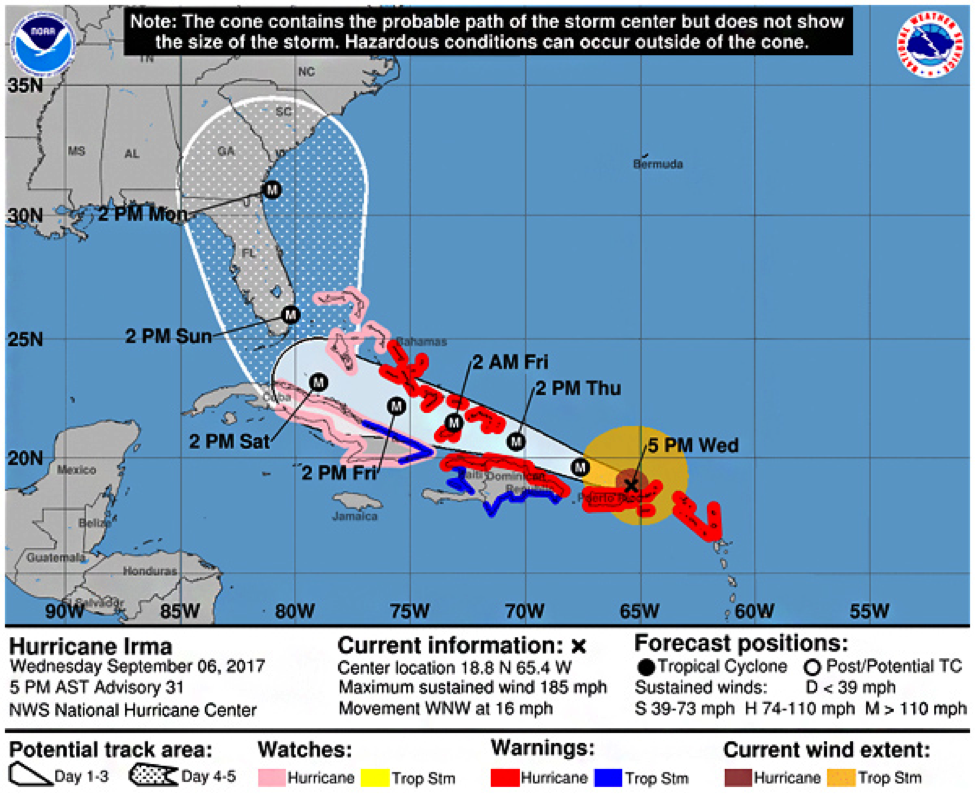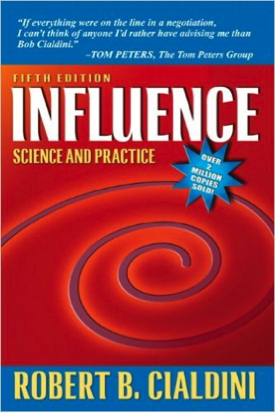As Hurricane Irma approached the U.S., I watched the storm with great interest. On Tuesday, I discussed preparation for the storm with my small group bible study from church. On Wednesday, the governor declared a state of emergency. On Thursday, Charleston Southern University shut down, and by Friday, all the public schools and libraries had closed even though the storm will not impact us until Monday.

As I write, the storm has not yet hit the US mainland. I have watched as Irma was projected to hit Charleston almost directly (It was projected to make land on Hilton Head Island) as a Cat 3. Newer projections have suggested that it will veer west, perhaps grazing us, but not doing much damage.
What I find most interesting about the hurricane is the way that we are making decisions during the storm. Rarely have other people been so interested in my weekend plans as they have been over the last few days. They don’t care about me; they are trying to figure out what they are going to do.
I vacillated about this myself. At first I thought I would ride it out. Then, the update about a near direct hit caused me to think about getting out of town. Then, more recent news caused me to prepare to stay while being prepared to get out if necessary. So, I spent the day getting supplies, dismantling a swing-set in the back yard, clearing the garage to park the minivan, and getting gas.
Along the way, as I made small talk, I was asking others if they were staying or going. I didn’t even realize I was doing it until I took some time to reflect on this week’s GBN educational piece.
My own behavior was driven home when a friend from my small group stopped by. I asked what she had decided to do. Her answer on Tuesday was that she would head upstate to stay with family if the storm hit here.
But she said, “I don’t know. I think I will stay here. All my friends are staying here.”
I said, “All of your friends may be nuts.”
She said, “Yes, but you wouldn’t put your family in harm’s way, so I think if everyone else is staying, it is pretty safe.”
Immediately I realized that this would be a great lesson. She was using social proof to make her decisions. Robert Cialdini, author of Influence: Science and Practice, is a professor of psychology and marketing at Arizona State University. He explained: “We view a behavior as correct in a given situation to the degree that we see others performing it.”[i]
Only on reflection did I realize that I had been doing the same thing. I was using social proof to determine the correct course of action.
When we are uncertain about what we should do, we look to others’ behavior to guide us.[i] For example, when I saw long lines at the gas station, I thought that I had better fill up. I had not checked the weather in a few hours, but I figured that they might know something that I did not know. Of course, this creates longer lines at the pump, but humans are social creatures who take cues from each other. When everyone is looking to everyone else, we have what psychologists and sociologists call “pluralistic ignorance.”[ii] It is how humans cope when they have difficult decisions to make.
Further, it does not take a crisis to engage in social proof. McDonalds uses social proof to its advantage, telling you how many other people enjoy their products. They are not the only ones who have sought the harness the power of social proof.
Social proof is not perfect. It is not gospel truth. Only gospel truth is gospel truth.
Social proof operates more like an opinion poll. It can aid you in making decisions by quickly aggregating the decisions of others into your calculations. While it can be manipulated by the unscrupulous, understanding how it works prevents the unscrupulous from taking advantage of you.
Application
Your customers, colleagues, and managers use social proof all the time. It is not the only way that we make decisions, but it is a secondary processing mechanism that works quietly in the background.
Now that you know how social proof operates, how can you use it to make better decisions?
References
[i] Cialdini, R. B. (2014). Influence: Science and practice. Harlow: Pearson education. (p. 99).
[i] Cialdini, R. B. (2014). Influence: Science and practice. Harlow: Pearson education. (p. 109).
[ii] Cialdini, R. B. (2014). Influence: Science and practice. Harlow: Pearson education. (p. 110).
-Darin Gerdes
______________

Dr. Darin Gerdes is an Associate Professor of management in the School of Business at Charleston Southern University. All ideas expressed on www.daringerdes.com are his own.
This post was originally created for Great Business Networking (GBN), a networking organization for business professionals where Dr. Gerdes is the Director of Education.
______________


